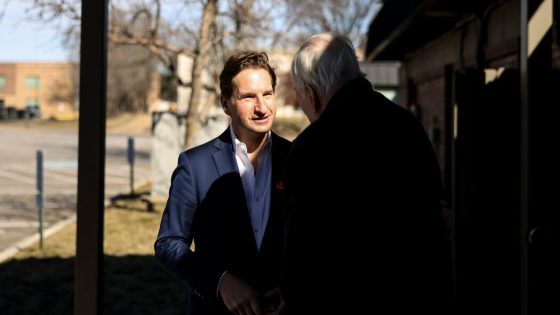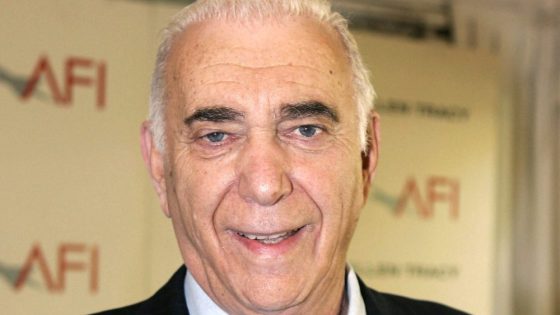Representative Dean Phillips of Minnesota suspended his long-shot campaign for the Democratic nomination on Wednesday and endorsed President Biden.
“To all who supported my effort, thank you. We will continue the important work to ensure a more responsive, democratic, and generationally diverse political system,” he wrote in a post on X. “But today, in light of the stark reality we face, I ask you join me in mobilizing, energizing, and doing everything you can to help keep a man of decency and integrity in the White House. That’s Joe Biden.”
Mr. Phillips, Mr. Biden’s most significant Democratic rival, had entered the race in October — in the absence of other serious primary challengers — after publicly arguing for months that the president was a weak candidate. Spending millions of his own money on his campaign, Mr. Phillips, one of the wealthiest members of Congress, pointed to Mr. Biden’s age and low approval numbers as signs that voters wanted a younger, new generation of leaders.
But while voters have indeed repeatedly indicated that they do not want a rematch between Mr. Biden and Donald J. Trump, they have also indicated a lack of interest in Mr. Phillips as a Democratic alternative.
In the final days of his campaign, the Minnesota congressman could barely disguise how that had hurt his feelings. “Congratulations to Joe Biden, Uncommitted, Marianne Williamson, and Nikki Haley for demonstrating more appeal to Democratic Party loyalists than me,” he wrote on social media as he finished in last place in state after state on the night of Super Tuesday.
And earlier in the day, as he cast his ballot at a polling place in Plymouth, Minn., Mr. Phillips sounded skeptical of Mr. Biden’s prospects in November, saying the “sad truth” was that the president wasn’t well positioned to win re-election.
“We have a candidate who I admire but is likely to lose to, I think, one of the most dangerous candidates in American history and that’s Donald Trump,” he said.
Mr. Phillips’s quixotic presidential campaign peaked with an underwhelming second-place finish in New Hampshire’s primary election. After campaigning extensively in the state, Mr. Phillips lost by a wide margin to Mr. Biden, earning less than 20 percent of the vote despite the fact that the president was not even on the ballot.
The Phillips campaign declined sharply from there. A moderate in the House, Mr. Phillips suffered an embarrassing defeat in South Carolina, the first official primary for the Democrats, falling to last place behind Mr. Biden and Ms. Williamson, a self-help author, with 1.7 percent of the vote. Mr. Phillips had tried to manage expectations, declaring the day before the primary that Mr. Biden “should get 95 percent of the vote in South Carolina.” His forecast was not far off.
But Mr. Phillips stayed in the race, setting his sights next on the Michigan primary at the end of February. He earned less than 3 percent of the vote there, falling in fourth place behind Ms. Williamson, who had dropped out weeks earlier, and the “uncommitted” ballot option — which took more than 13 percent of the vote in protest of the Biden administration’s position on the war in Gaza.
From there, Mr. Phillips’s campaign limped to Super Tuesday, where he finished far behind Mr. Biden and even behind Ms. Williamson in most states.
Once a member of Democratic leadership in the House, Mr. Phillips has paid a steep price for his failed challenge against Mr. Biden. He stepped down from a leadership position as he contemplated entering the race, and his influence within the party waned as he openly criticized the president’s candidacy. By the time Mr. Phillips announced his campaign, Democratic lawmakers and party officials were fed up with him and openly expressed their contempt for his primary challenge.
Mr. Phillips, an heir to a Minnesota liquor company who also at one point ran the gelato company Talenti, proudly declared early in his campaign that he had “torpedoed” his career in Congress. Soon after, he said he would not run for re-election in his congressional seat, a district that includes suburban Minneapolis. He spent at least $4 million of his own money on his failed campaign, according to a year-end filing with the Federal Election Commission.
Nicholas Nehamas contributed reporting.
Source Agencies


